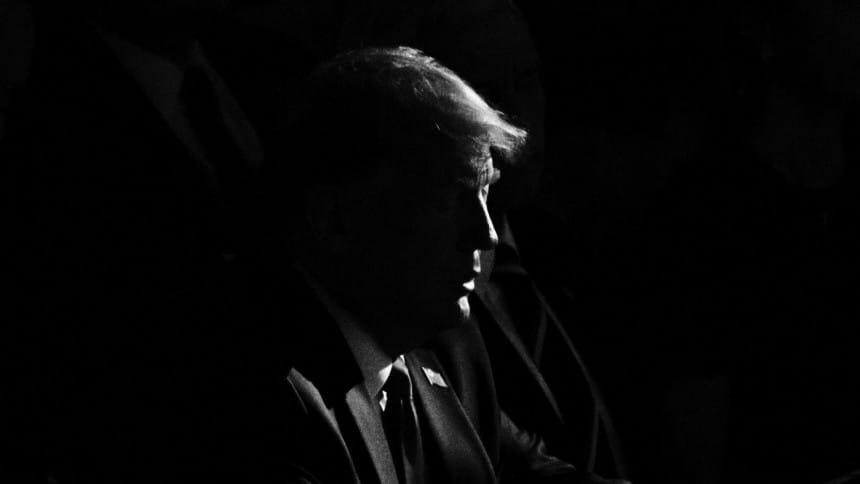How to impeach a US president: A brief primer

Common misconceptions
The first thing to remember is this: impeaching the president is not removal of the president. That may happen later, depending on developments further down the process (more about this later).
The US president most associated with impeachment in public memory is President Richard Nixon who left office following the Watergate scandal in 1974 (more recently, US President Bill Clinton was impeached as well, but the most searing memory, I would argue, is still associated with Nixon, possibly because Clinton didn't have to leave office).
Nixon was not impeached. The US House of Representatives was on the verge of voting to impeach him. Nixon decided to avoid the ignominy of being only (at that time) the second US president ever to be impeached. He resigned.
A two-step process
So how does impeachment work? First of all, impeachment is a beginning of a process, similar to a criminal indictment. In other words, impeachment is a formal framing of charges against a US president accused of "high crimes and misdemeanours" as laid down in the US Constitution.
The US has a bicameral federal legislature, the Congress, comprising the 100-member Senate and the 435-member House.
The impeachment process begins in the House. A full house has to pass articles of impeachment by a simple majority.
The process then moves to the US Senate. According to precedent, the Senate holds a trial and votes on each article of impeachment. A two-thirds majority is required to remove the president.
History of impeachment of US presidents
In US history, two presidents have been impeached.
In 1868, the House approved 11 articles of impeachment against President Andrew Johnson. In 1998, the House approved two articles of impeachment against President Bill Clinton.
Both were subsequently acquitted by the Senate. Neither was removed from office, yet both are considered impeached with the passage of articles of impeachment. Nixon, on the other hand, left office, but was never impeached, because he resigned before the articles of his impeachment could come to a vote.
It's all political
None of this legislative arcana should obscure the fact that impeachment is an intensely political process. A Republican-controlled House impeached Clinton, but the Democratic-controlled Senate acquitted him.
Today, the tables are turned. It seems quite possible (some analysts say inevitable) that the Democrat-controlled House will impeach Trump. If and when that happens, the process moves to the Republican-controlled Senate, and it appears extremely unlikely that the Senate will vote with a two-thirds majority to remove Trump.
Many analysts point out that the Republican effort to impeach Clinton, while successful, came at a cost. The Republicans lost seats in the following Congressional elections, and Clinton's approval in polls soared.
That's true as far as it goes, but there are crucial differences today. Clinton, whatever his faults, was extraordinarily savvy. His administration followed a focused, rigorously disciplined strategy of avoiding the issue and concentrating on governance. This, in addition to a soaring economy, gave him robust poll approval ratings.
Trump is no Clinton. Today, Trump is yet to come even close to 50 percent approval ever—if anything, a majority of respondents tell pollsters in recent times they disapprove of him.
Discipline is not Trump's strongest suit, as readily evident from a sampling of his fevered public ramblings at the United Nations on September 26.
It includes ugly attacks on the press ("Fake news, fake news. They're scum, many of them are scum…."), a cheap schoolyard rant against a political opponent ("And then you have Sleepy Joe Biden, who's dumb as a rock. This guy was dumb on his best day, and he's not having his best day right now. He's dumb as a rock…."), and a round of self-congratulation that's noteworthy for its callow, juvenile diction:
"And then they talk about me, and I didn't do anything. I don't know if I'm the most innocent person in the world. But you know you look at that—most presidential, I just said I'm the most presidential except for possibly Abe Lincoln when he wore the hat—that was tough to beat….But I can't do that, that hat wouldn't work for me. Yeah, I have better hair than him."
Yeah. The president of the United States of America actually talks like that.
Although a few cracks are beginning to appear, Republican lawmakers are terrified of antagonising him. They know that hell hath no fury like Trump.
Taegan Goddard reported in his popular blog "Political Wire": "The Los Angeles Times reports there's 'no sign that the GOP-controlled Senate, where 67 votes are required to remove the president from office, is about to turn on Trump."
One senior Senate (Republican) aide said: "At this point, Trump could be caught walking out of a Federal Reserve bank with two giant sacks of money in his hands and no Republican would vote to impeach him for grand larceny."
The aide added: "Our voters want two things from their congressmen: pissing on the media and blindly defending the president. That's what being a Republican has come to."
That, in a nutshell, is the mess we are in. Only one thing is certain: The coming political battle over impeachment is going to be nasty, bitter and acrimonious, tearing America apart.
Fasten your seat belts, folks.
Ashfaque Swapan is a contributing editor for Siliconeer, a monthly periodical for South Asians in the United States.

 For all latest news, follow The Daily Star's Google News channel.
For all latest news, follow The Daily Star's Google News channel. 




Comments